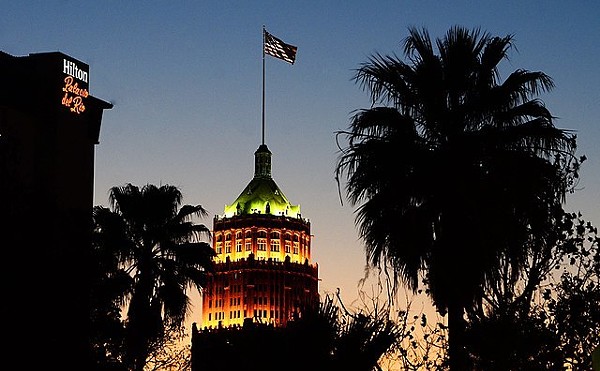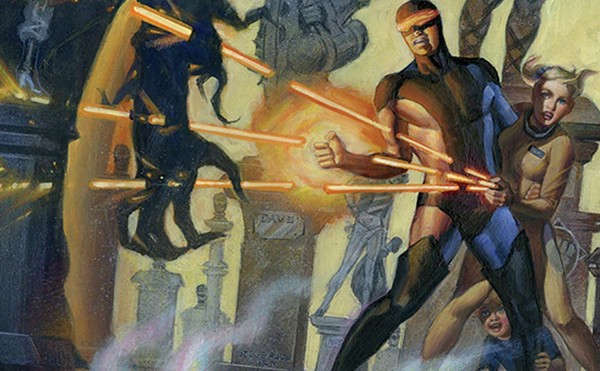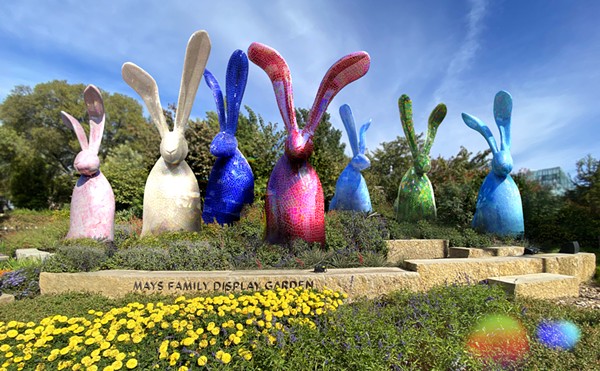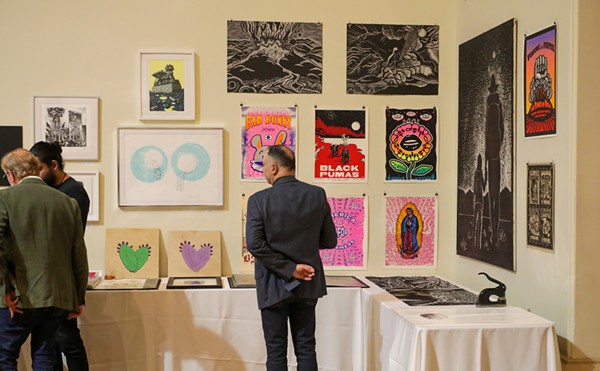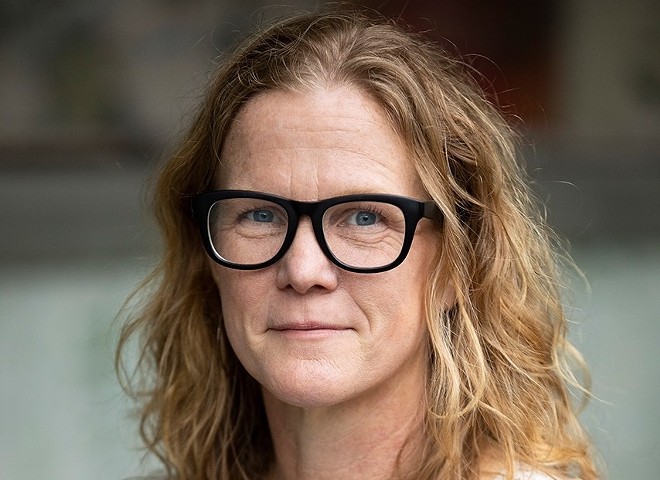
Texas, Being: A State of Poems is an anthology that doesn't pretend to cover the history of Texas or even every town and city. There's something else at work in this collection curated by Jenny Browne, a professor of English and creative writing at Trinity University who also happens to be the 2016-18 poet laureate of San Antonio and the 2017 poet laureate of Texas.
Browne explains in a brief introduction that the enigmatic title borrows from the title of a poem she wrote when she moved to this "brutal and beautiful state."
This is the description that sets the tone for this impressive and wide-ranging collection of 47 poems — all in one way or another about Texas.
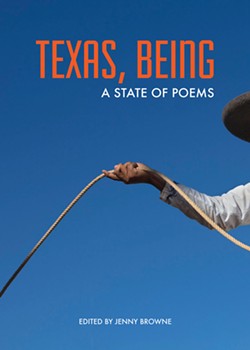
Matthew Zapruder's "April Snow" begins: "Today in El Paso all the planes are asleep on the runway. The world / is in a delay." Zapruder was born in Washington, D.C., and went to college in Russia and later in California, where he lives today. While he lived for a time in Marfa, this sizing up of a moment in El Paso from this itinerant perspective delivers the ways good poetry sees the significance in things most of us would pay little attention to, how the imagination amplifies the significance of a thing — a place that never leaves you.
While Zapruder manages to observe El Paso without living there, Jeff Sirkin actually resides in the West Texas border city. In his "At Our Disposal," the title of the poem suggests what is easily close by, but we quickly move on to consider the ways we "dispose-all" (perhaps most especially on the border), from the remnants of a renovation cast into a driveway to the black smoke that migrates from Mexico into the atmosphere to the girls "next door [who] disappeared," a reference to the murdered girls and women of Juárez.
Vievee Francis is from Texas. She later lived and worked in Michigan and North Carolina and now teaches at Dartmouth College. Her poem "Still Life with Summer Sausage, a Blade, and No Blood" takes us to East Texas in the 1980s. And then, through staggered parenthetical phrases, the speaker moves us to consider a memory that is, not faulty, but deliberate in ambiguously recounting and reimagining a seemingly ordinary trip a child and her father take to the town of Palestine.
The "storefronts hadn't changed since / my father was a child," she explains, and we understand that racial and class divisions have persisted. They share a snack of saltines and a sausage he cuts with a pocketknife. "We were together / in Texas and we ate and walked in silence," she writes.
Reflected in this collection is the fact that Texas is kaleidoscopic. But no matter where we go in these poems, the spaces render both a nostalgia and a terrible enlightenment — the beauty and the brutality which Browne earlier describes.
In San Antonian Emily Winakur's "Uvalde," the speaker addresses her child and recalls the Uvalde, Texas of her childhood. As a young person she could look out the car window and there would be "an example, in landscape form, of all I could do and be."
She says that in those days she never considered her parents' gun, even if it was close by in the car's glove box. She tells her child, "What I thought about when I thought about home / was wildflowers / rampaging across the land in spring; about fishing in shallow bays. / I thought Uvalde would be a name you knew from / stories I told ... Instead Uvalde will mean something else to you."
In another poem, it is the child who speaks to the parent. Tarfia Faizaullah is a Bangladeshi American poet, originally from West Texas. In "Aubade: Summer, Texas," the speaker addresses her father with the "faint scent of coriander still lingering" on his fingers: "Neither the sky nor your hands will change what they do — you lay out the prayer mat / on summer grass." Her father will pray and never "stop looking for the face of the god who, even at dawn, is silent."
The pointillistic precision of this experience of a newer immigrant to Texas shows that there is very little in human experience that is unfamiliar. We have more in common than not — even in Texas with its complicated history and the inglorious tendencies it clings to today.
In "Texas," Jorge Luis Borges describes the state as "the other/Edge of the hemisphere ... Here too, the never understood / Anxious, and brief affair that is life."
When you see a copy of Texas, Being, you might at first think that you can enter it and exit it easily, speedily. That will be an incorrect assumption. You will turn the first page, and the book will fan open like a map of the whole world you'll want to explore.
Those interested in learning more about Texas, Being have at least two upcoming opportunities:
Trinity University Press and Texas Public Radio will host Texas, Being editor Jenny Browne and contributors Christopher Carmona, Naomi Shihab Nye and Andrea "Vocab" Sanderson as part of the Maverick Book Club. Free, 7 p.m. Wednesday, April 10, Texas Public Radio, 100 Soledad St., (210) 614-8977, tpr.org.
A Texas, Being: A State of Poems panel will take place at the San Antonio Book Festival in the Texas Monthly Tent. The panel includes Jenny Browne and contributors Jan Beatty, Octavio Quintanilla, and ire'ne lara silva. Free, 4 p.m. Saturday, April 13, Central Library and UTSA Southwest Campus, 600 Soledad St. and 300 Augusta St., (210) 750-8951, sabookfestival.org.
Subscribe to SA Current newsletters.
Follow us: Apple News | Google News | NewsBreak | Reddit | Instagram | Facebook | Twitter| Or sign up for our RSS Feed





